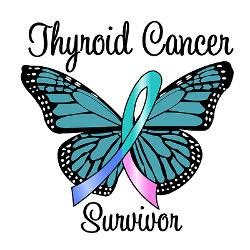Pain is pain, no matter where it occurs, and I have been experiencing very challenging pain from various areas of my body--all at the same time.
I need a professional pain management physician to treat me. I realize the specialty of pain management is one of great insight, with interest in the patient's well-being, of their quality of life, and in keeping their patients educated along with a life of tolerable pain levels.
A guest post concentrating on the treatment of the Cluster headache follows, with some great information. My heart goes out to those whose pain is always in their heads. I know people who suffer with migraines, I used to, and they are absolutely debilitating.
How to Treat Cluster Headaches
Cluster headaches occur in cycles and typically develop on one side of the face behind the eye. These are some of the most painful headaches, which can last for several weeks or even months. Fortunately, there are remission periods when the attacks stop for varying lengths of time.
If you experience frequent cluster headaches, there are some treatment options that can reduce the frequency of your attacks and intensity of your symptoms. These treatments fall into three different categories, and they are abortive medications, preventative medications and surgery.
Abortive Medications
Abortive medications are those treatments that are used during an attack to help relieve existing symptoms. While there are many of these medications, the most effective include sumatriptan, other triptans and oxygen therapy. In addition, you may wish to try intranasal lidocaine, anti-inflammatory medications, dihydroergotamine injections and ergotamine drugs.
Preventative Medications
As their name implies, preventative medications are used to help prevent cluster headaches from developing in the first place. However, it is essential to note that results may vary among patients, and some patients may still experience mild cluster headaches even after taking these medications. The most common drugs in this category are listed below:
- Ergotamine tartate
- Lithium
- Prednisone
- Divalproex sodium
- Beta blockers
- Calcium channel blockers
- Cyproheptadine
- Amitriptyline
- Topiramate or valproic acid
Surgical Treatments
On very rare occasions, doctors may recommend surgery for patients who experience chronic cluster headaches that cannot be relieved through any of the above treatment methods. Surgery may also be an option for people who cannot tolerate various medications or who are experiencing too many side effects from medications.
The goal of surgical procedures is to block the nerve pathways that are responsible for cluster headache pain. However, there is a risk of complications with surgery that can include muscle weakness of the jaw or sensory loss in various areas of the face and head. It is for this reason that surgery is rarely considered.
Preventative Steps You Can Take
There are some things you can do on your own to help prevent cluster headaches. By keeping a headache diary, you can identify what may be triggering your attacks. Once you know what your triggers may be, you simply need to avoid them. There are many things that can trigger cluster headaches, such as smoking, alcohol, various foods, unusual sleeping patterns, overexposure to the sun and poor nutrition.
Occipital Nerve Stimulation
Currently, researchers are studying a new potential treatment for cluster headaches known as occipital nerve stimulation. For this procedure, specially-designed electrodes are implanted in the back of your head. These electrodes are then connected to a tiny pacemaker-like device. When necessary, the electrodes send impulses to encourage the stimulation of the occipital nerve, which may relieve or even block the pain from cluster headaches. While several studies have found the procedure to be effective in small groups of people, it has not yet been established as a viable treatment method.
Although cluster headaches are some of the least common types of headaches, they are also some of the most painful. While there are no exact cures for cluster headaches, there are a number of treatments to help reduce or relieve the symptoms. If you experience cluster headaches, speak with your doctor to find the best treatment option for you.
Julian Kahn works at the Migraine Relief Center. Their treatments help headache sufferers cope with the pain of cluster, sinus, tension and migraine headaches.
Gentle Hugs....and a tolerable pain day.

